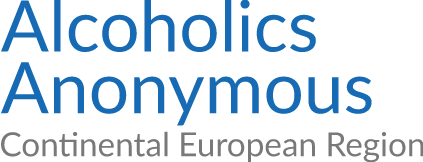Two pilot programs have been launched in Basel and Zurich Switzerland taking the advice of Dr. George Vaillant M.D and a former nonalcoholic trustee. In a Harvard magazine article, Dr. Vaillant said “.. when it comes to treating alcoholism, the medical profession feels so helpless, so without hope. And for a doctor, feeling powerless is reason enough to put his head in the sand.”
When questioned later in a Grapevine interview why that feeling persists, he explained, “You have to remember that very few doctors have ever seen a recovered alcoholic. If you’re recovered, you don’t have any reason to tell your doctor you’re an alcoholic. And if you’re not recovered, you go back to see him a hundred times, so you’re forever etched in his memory. Consequently, doctors overcount the failures and have no knowledge of the successes. They don’t understand that 40 percent of all recovery has probably occurred through Alcoholics Anonymous.”
The interviewer went on to ask what could be done to change that? Dr. Vaillant suggested two simplistic ways, both within the power of our Fellowship.
- “Take your doctor to open meetings so he or she can see for themselves these well-dressed people who look like anybody else and have been in recovery for years. It was terribly important for me to get inside of open meetings and see sober alcoholics for myself because they’re terribly inspiring.”
- “The second is to twelfth-step your doctor – not to teach him about alcohol or Alcoholics Anonymous, but to give him a list of names that motivated patients could call. Doctors aren’t experienced enough in their practices to find recovering alcoholics, so recovering alcoholics must either say “I will talk with patients,” or give doctors referrals. What medical professionals need is a list of referral sources, clearly typed, and some success using those referrals, so they have hope rather than hopelessness.”
Link to the Grapevine interview with Dr. Vailant.
The Basel and Zurich pilots ask their respective Fellowships’ members to answer 12 questions that are of high relevance to health professionals. The survey intro explains:
We are preparing a new info package for outreach to local doctors, therapists and mental health institutions. Our aim is to offer these health professionals immediate access to local English-speaking AA groups as an ideal support community for their patients and clients suffering from alcoholism. But due to wide-spread misconceptions about what AA is (and is not) within the European medical establishment, we need to provide these professionals with factual evidence that our program can lead to long-term recovery. Therefore we ask you to answer a few questions testifying to AA’s role in your personal recovery.
Based on past membership surveys in North America and GB/Continental Europe, local members’ data will likely reveal health professionals played an important role both BEFORE problem drinkers found AA, and AFTER they came to AA. With this data and basic demographics, we can make a strong case for AA’s historical and current role supporting local health professionals’ patients to recover from alcoholism.
Stay tuned for monthly updates or consider applying to join the Health Liaison Officer’s working group. Send name, mobile number and your specific interest in reaching out to health professionals to health.cer@aamail.org.
Yours in service, Joel B. CER Health Liaison Officer

